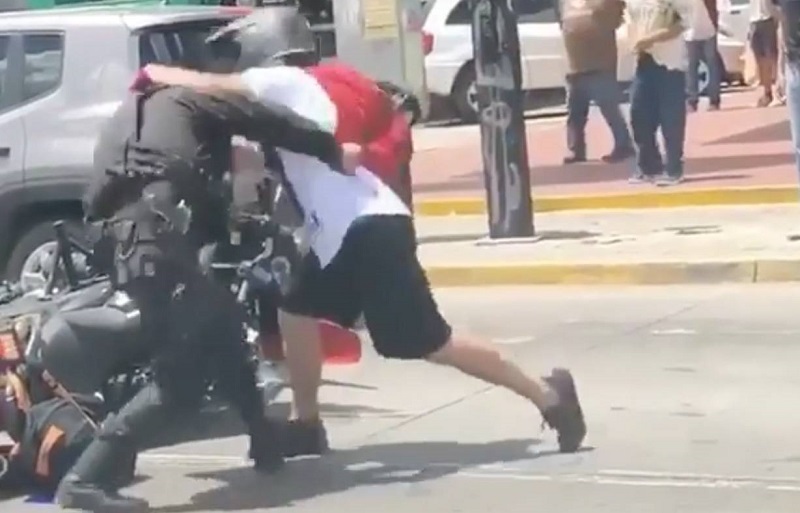

By Steve Pomper
There’s a lot of talk about de-escalation these days, as if there’s an incantation officers know that can calm any person no matter how under-the-influence or psychotic he or she is. If an incident requires an officer to use force, these folks deem the officers failed to “de-escalate.”
But there are some things that these people never consider. It’s too easy to watch a use of force, whether in person or on video, and decide “I would have done it better.” Doing things in your mind always works out perfectly. In my mind, I can quarterback a game better than Tom Brady—ever has—in his entire career. In my mind.
And there are other things people don’t consider. We all can learn techniques that are broadly accepted as likely to defuse potentially violent situations. Also, some of us are naturally better at de-escalation than others. That’s just human diversity. Otherwise, everyone could sing like Freddie Mercury.
And then some incidents just don’t fit into a neat category. A call I responded to illustrates an aspect of de-escalation hard to categorize. It involves firefighters; you know, heroes (as my firefighter wife likes to remind me—often). My beat was filled with mental health facilities and public housing where many of these clients lived.
I got a call to assist the fire department with an aggressive but not yet assaultive man with mental health issues. Mental health professionals had called them to deal with a man with a head wound outside their facility. When I arrived, I saw a man sitting by a tree, with two firefighters talking to him. Then the man began banging his head against a tree, causing bleeding.
As I approached, he paused. He spoke Spanish, which we didn’t, and he said he was from Puerto Rico. Partially calmed, and not willing to come with us peacefully, rather than go hands-on, risking injuring him more, the firefighters came up with a plan to de-escalate (I should have known things had gone terribly wrong at that moment).
A firefighter still at the station, which was only a few blocks away, happened to be originally from Puerto Rico. So, aside from the fact he spoke Spanish, he and the man hailed from the same place.
He arrived, and you could tell we all thought the situation was in hand—about to be de-escalated. The man had calmed and was now only thumping his head lightly against the tree, but not enough to cause injury. Then the firefighter approached and spoke in Spanish to the man. The man replied and seemed to bristle. The firefighter said something else. The man replied, this time, angrily. The firefighter said one other thing, and the man exploded.
He began screaming something in Spanish and was ramming his head against the tree. No choice; we had to go hands-on. We restrained the man, and I put my handcuffs on him. We got him on a gurney, into four-point restraints, and fire transported him to the hospital.
The firefighters in the ambulance drove off, while the Puerto Rican firefighter and his partner who’d arrived later remained. I asked him what happened. He explained to me that the man was from a different part of Puerto Rico. He said, “He could tell by my accent I was from a place where people he didn’t like lived.”
I’d never thought much about it because Puerto Rico is relatively small. However, just like here on the mainland, it happens. I was born and raised in Massachusetts, a small state where, generally, the accents are different in Boston than in Worcester than in Springfield.
The point is, there are so many factors that go into de-escalation some people don’t consider. Some people will not de-escalate no matter what you do. Could another officer have de-escalated an agitated person? Sure. Just like another officer might de-escalate a situation that, that officer could not. With de-escalation, sometimes it seems more art and chance than math and science.
So, the next time you hear someone accuse an officer of “failing to de-escalate,” think about this story. And, think about all the stories you don’t know that show the same thing: if an officer uses force, it doesn’t automatically mean they failed to de-escalate. Again, some people just refuse to cooperate with our neat little plans. As the Yiddish adage goes: Mann Tracht, Un Gott Lacht. Man plans, and God laughs.